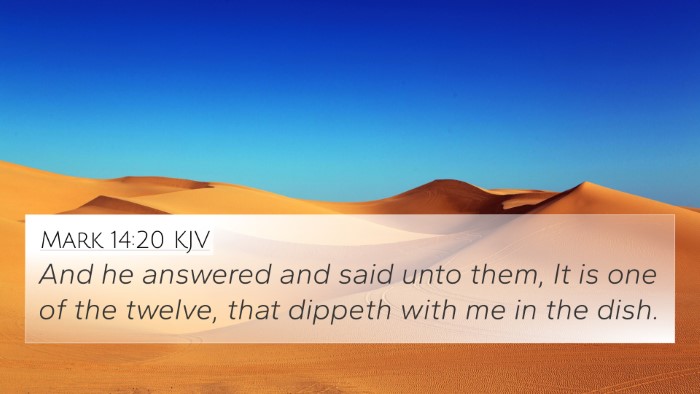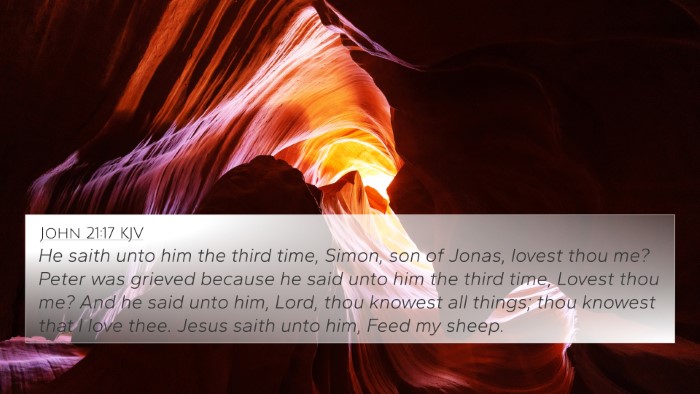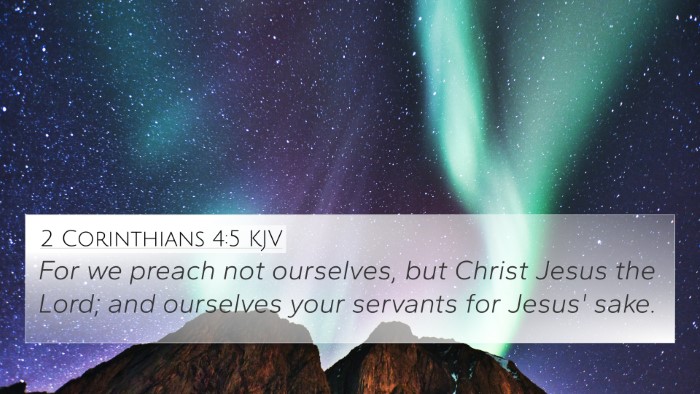Understanding John 13:18
John 13:18 reads: "I do not speak concerning all of you. I know whom I have chosen; but that the Scripture may be fulfilled, 'He who eats bread with Me has lifted up his heel against Me.'" This profound verse is rich with meaning, drawing from various biblical themes and foreshadowing future events within the New Testament.
Verse Meaning and Analysis
This verse occurs during the Last Supper, when Jesus is preparing to face His betrayal. The act of Jesus choosing His disciples and acknowledging one will betray Him reflects the sovereignty of God coupled with human free will.
- Divine Foreknowledge: Jesus displays His awareness of the upcoming betrayal, emphasizing that betrayal is part of a divine plan. This scripture underlines His control over the unfolding events.
- Fulfillment of Scripture: The mention of Scripture being fulfilled connects this event to the broader narrative of the Old Testament. It indicates continuity and the prophetic nature of Jesus’ mission.
- Symbol of Betrayal: The phrase "he who eats bread with Me" signifies intimate fellowship. This reference to Psalms 41:9 illustrates the gravity of Judas' betrayal, as close companionship is turned to treachery.
Commentary Insights
Matthew Henry's Commentary
Matthew Henry emphasizes the choice of the disciples, indicating that Jesus knew who would betray Him and the profound implications this had on His ministry. He discusses how Jesus’ acknowledgment of Judas' impending betrayal accentuates the seriousness of human betrayal, especially within the context of a trusted relationship.
Adam Clarke's Commentary
Adam Clarke underscores the fulfillment of prophecy and the necessity of recognizing Jesus’ foreknowledge. Clarke notes that Judas's betrayal was prophesied long before, pointing to a divine orchestration in the events leading to Christ’s crucifixion. He highlights that even amidst betrayal, God’s plan remains intact.
Albert Barnes' Commentary
Albert Barnes focuses on the psychological aspect of betrayal and how Jesus, knowing the hearts of men, still offered grace and friendship. The mention of Scripture reinforces the idea that betrayal does not hinder God’s purposes but rather serves them.
Bible Cross-References
This verse is connected to several other scriptures which help deepen the understanding of its implications:
- Psalms 41:9: "Even my own familiar friend in whom I trusted, who ate my bread, has lifted up his heel against me."
- Matthew 26:14-16: The account of Judas agreeing to betray Jesus for thirty pieces of silver.
- John 6:64: Jesus indicates that He knew from the beginning who would betray Him.
- Isaiah 53:3: A suffering servant, rejected by men, relates to Jesus’ experience.
- Zechariah 11:12-13: The prediction of the price of the betrayal is noted.
- Mark 14:10-11: Judas Iscariot’s betrayal and the agreement with the chief priests.
- John 17:12: Jesus refers to the loss of the one doomed to destruction, highlighting His foreknowledge of events.
Thematic Bible Verse Connections
John 13:18 serves as a critical junction in understanding the themes of betrayal, prophecy, and divine knowledge. The discussion on betrayal illustrates how close relationships can be fraught with human failings, a reflection echoed by multiple writers in the New Testament.
Conclusion
John 13:18 is a profound reminder of the complexities of human relationships and God's overarching sovereignty. Understanding this verse through various commentaries enhances its interpretation, revealing deep theological insights and pointing towards the fulfillment of prophecy. The cross-references provided offer additional layers to the narrative, encouraging thorough biblical studies and encouraging readers to explore the interconnectedness of scripture.
Further Study
For those interested in deepening their understanding of scripture, utilizing tools for Bible cross-referencing can enhance thematic studies and promote a more interconnected view of biblical texts. Resources like a Bible concordance, Bible cross-reference guide, or engaging in cross-reference Bible study can help illuminate the many links between scripture passages.
















